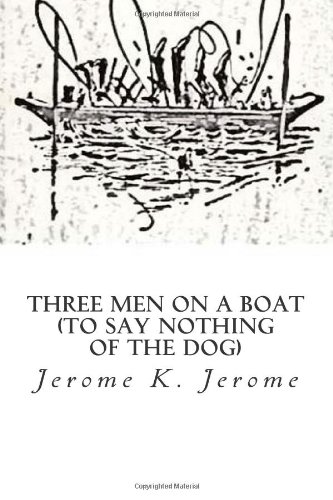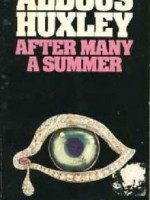 Three Men in a Boat: To Say Nothing of the Dog
Three Men in a Boat: To Say Nothing of the Dog
Fiction

An English comic novel. That sentence, no matter how short, completely sums up this book. The English excel at a certain sort of comedy that is both witty and cutting – poking themselves in the eye while tickling our funny bone. Jerome K Jerome’s Three Men in a Boat can easily be seen as the precursor of such beloved sit-coms as Faulty Towers, Rising Damp and a host of acerbic English jesting.
The tale starts when three friends decide to take a trip on the river (the Thames) for the good of their health – to “restore the mental equilibrium” – all being of the opinion that they are very poorly indeed. They plan make lists and set off with bags, umbrellas, coats, hampers, rugs and a dog.
The story of their recuperative sojourn is interspersed by yarns and antidotes and opinions on both their own declining health, relative vigour and their companion’s idleness. The journey is dogged by mishaps of their own making and dramatisation.
Much of the comedy derives from the reader seeing though their blustering hot air. The companion’s dog, Montmorency, is described as being a most friendly fellow if not a little rambunctious. In fact the animal wages warfare on all and sundry and gathers a mangy crew of canines to him.
I also particularly enjoyed the foreshadowing descriptions at the beginning of each chapter. Rather than taking from the events to come, their clipped, factual descriptions brought a pleasurable groan of anticipation of future antics.
Though written in 1889 the work reads as a retrospectively written novel, such is the appropriateness of much of the comedy to today’s audience. In particular, I laughed heartily at the section describing the tat of today becoming the antiques of the future; “Will it be the same in the future? Will the prized treasures of today always be the cheap trifles of the day before? Will rows of our willow patterned dinner-plates be ranged above the chimney-pieces of the great in the years 2000 and odd?…The ‘sampler’ that the eldest daughter did at school will be spoken of as “tapestry of the Victorian era”, and be almost priceless.” How prophetic and especially humorous considering the English obsession of rummaging in their attics, jumble sales and grannies’ sheds to find priceless pieces of rubbish.
This is not the only example of Jerome’s sharp observational humour that makes this reader guffaw. It is a laughing at ones self that is not self-depreciating or pointing out stupidity, but is a witty examination of human nature and Englishness.
One to stick in your knapsack on your next restorative jaunt. ![]()




